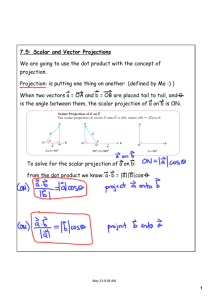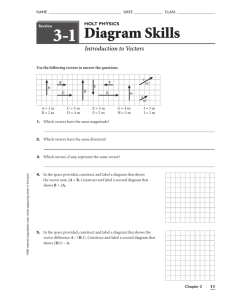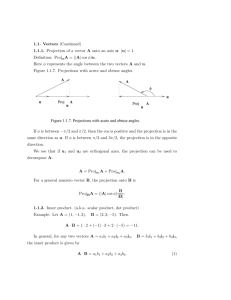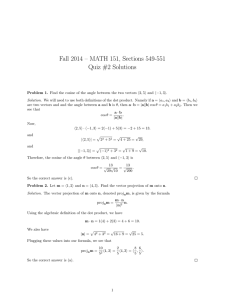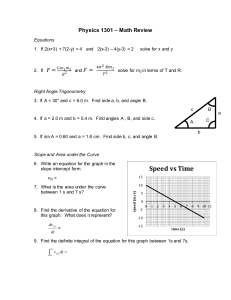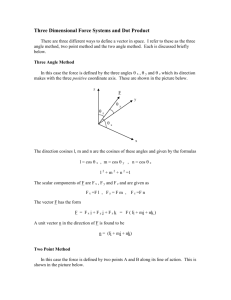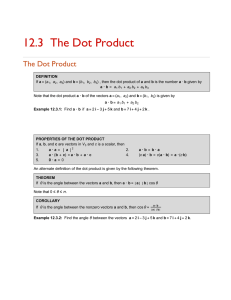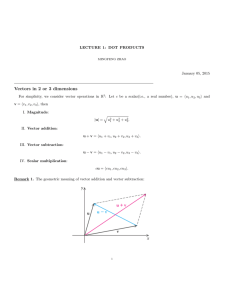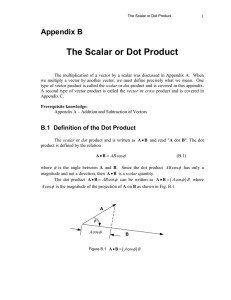Dot Product
advertisement
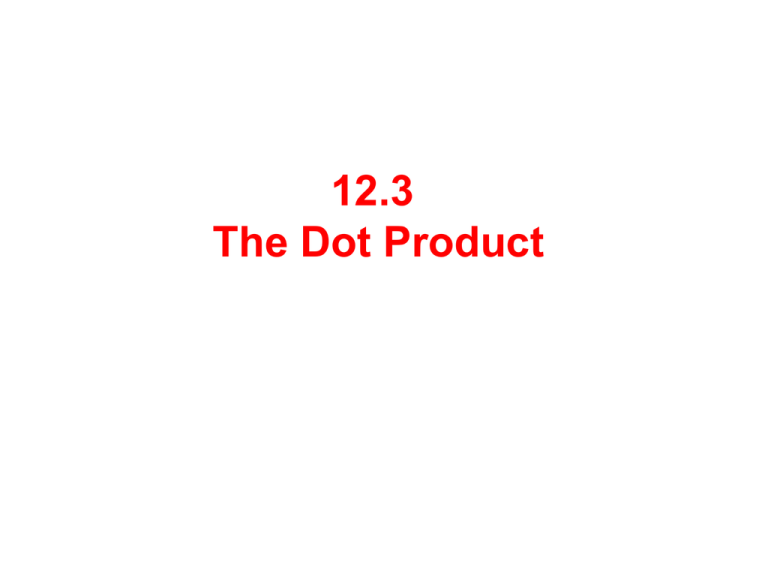
12.3 The Dot Product Definitions Let u u1 , u2 , v v1 , v2 . The dot product of u and v in the plane is u v u1v1 u2 v2 (Read “u dot v”) The dot product of u and v in space is u v u1v1 u2 v2 u3 v3 Examples 3, 4 5, 2 3 5 4 2 23 2, 3 3, 2 23 3 2 0 Two vectors u and v are orthogonal if they meet at a right angle. if and only if u ∙ v = 0 (since slopes are opposite reciprocal) Properties Let u, v, w be vectors 1. 2. 3. 4. u v v u u ( v w) u v u w c(u v) cu v u cv 0 v 0 5. v v v 2 Another form of the Dot Product: u v u v cos where is the angle between two nonzero vectors u and v. Examples Find the angle between vectors u and v: u 2,3 , v 2,5 uv 11 1 cos cos 55.5 13 29 u v 1 Direction Cosines Angles between a vector v and 3 unit vectors i, j and k are called direction angles of v, denoted by α, β, and γ respectively. Since v i v cos v1 , v2 , v3 1,0,0 v1 we obtain the following 3 direction cosines of v: v1 cos v v2 cos v v3 cos v Projections 𝑢∙𝑣 𝑝𝑟𝑜𝑗𝑣 𝒖 = 𝑣 2 𝑣 𝑢∙𝑣 𝑐𝑜𝑚𝑝𝑣 𝒖 = 𝑣 u w v Let u and v be nonzero vectors. w is called the vector projection of u onto v, denoted by projvu The signed magnitude of the vector projection is called the scalar projection of u onto v, or vector component of u along v, denoted by compvu Examples u 1,7, 2 , v 2, 2,6 , w 1, 1,3 1) Compute u ( v w) 2) Compute u v uw 3) List all pairs of orthogonal and/or parallel vectors. 4) Find the angle between vectors v and w. 5) Find the unit vector in the direction u. 6) Find scalar projection of w onto u. 7) Find vector projection of w onto u.

